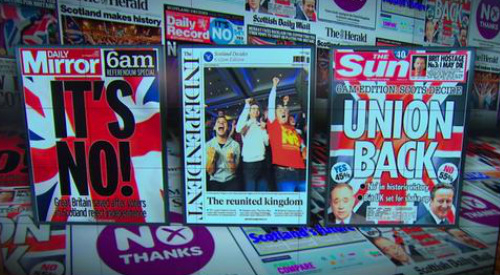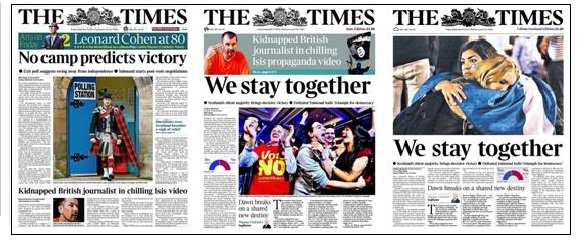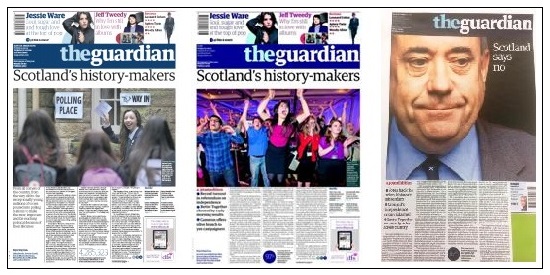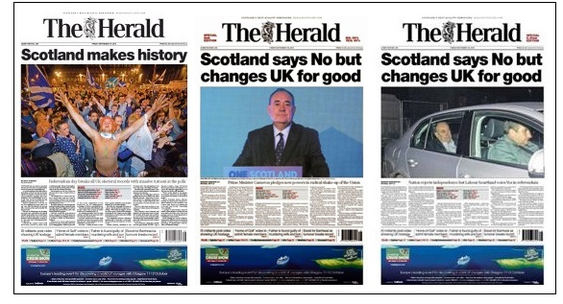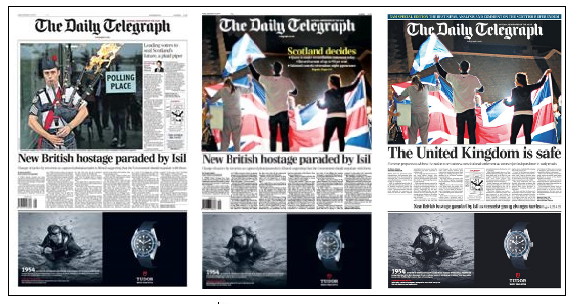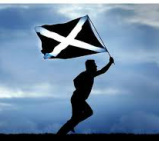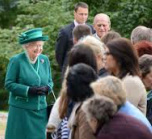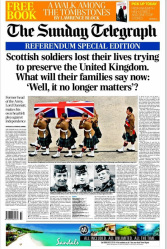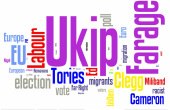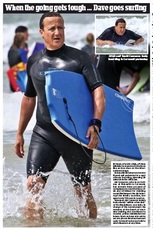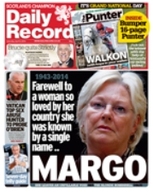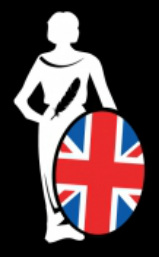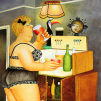Scottish referendumThe final editions and the joy of six (am)Friday 19 September, 2014
Few nights on a newspaper are as much fun for subs as election nights. You know it's going to be a long, hard slog, but there are compensations. For a start, unlike with a breaking story, you are going to be staffed up. There will also be a greater sense of camaraderie and common purpose with the reporters than is usual as you work together late into the night, hours after the writers would normally have gone home. The hiatus after the first edition has gone off stone gives you time to socialise before the real work starts; the bosses might even have laid on pizza or sandwiches and coffee - or beer and wine, depending on the alcohol policy. Then, when the results start to come in, the deadlines follow thick and fast, and before you know it, you're wandering out into the dawn, elated and proud of a job well done. You know, of course, that your efforts will be out of date long before they reach the streets. As you work, you are following events on the television screens dotted round the office - and so are your readers. And even if they call it a night and turn in before the magic victory line is reached, they will wake up to radio bulletins that tell them the results and broadcast the concession speeches, long before they pick up your paper with its exit poll splash. But that knowledge is never allowed to interfere with the innate compulsion to be part of the occasion, to tell the story your special way. Personally, my most exhilarating night was in 1992 when John Major pulled off the seemingly impossible as Neil Kinnock felt the hubris of that over-confident Sheffield rally. The '83 poll was the worst night of my career, largely as a consequence of a surfeit of gin; the Obama election possibly the best. That is the paper whose results I have kept both in print and in frames (although the best edition is sadly missing from the framed collection because it was overwritten by the final slip). For a flavour of that special atmosphere, here are some of last night's tweets from Katherine O'Donnell, The Times's night editor in Scotland. In between putting the paper together, she was tweeting about what was happening with the referendum count and also what was going on in her Edinburgh office. In the meantime, Hannah Fletcher was in the Baby Shard putting together the 6am London edition, which had John Cantlie on 2 and 3, where the Scottish paper went all out on the referendum.
As O'Donnell tweeted, the coffee and adrenaline sees you through the night and, however little sleep you snatch, you're eager to return to the office as early as possible. There will, you hope, be plaudits from the boss and back-slapping all round, with everyone declaring loudly that your paper knocked the opposition into a cocked hat. Getting back into the routine of a frantic day without the hour-by-hour excitement is a bit of a comedown, but with any election there is a loser and the chances are there'll be a resignation to buoy you up. There's another reality check along the way, though. No matter how brilliant your efforts, the vast majority of your readership won't see them. That final edition, with its red 6am or 7am edition tagline in the titlepiece, will have a print run in the tens of thousands if you're lucky (about 19,000 copies of the final Scottish edition of the Times were printed this morning), and will often get only as far as the editor's office, the television and radio studios, and the paper shop round the corner. The chances of any London paper printed after 2am reaching beyond the M25 are remote. So it's all a waste of time? Absolutely not. Yes, to be honest, these late, late editions are vanity publishing. But what a joy it was to see the efforts of journalists working on the referendum paraded today. If it weren't for the websites, the tablet and mobile editions that have to be updated through the night, these newsprint treasures would probably have died the death long ago. That would be a shame. They may not make economic sense, but they are invaluable in terms of job satisfaction. And there is precious little of that around in these days of budget constraints, staffing cuts and increased workloads. They are also good publicity. Television channels have a lot of 'space' to fill the morning after an election, and so there is almost always an extended slot for that morning's papers; everyone naturally wants to look the most up-to-date, the most stylish and original. It can only be a matter of time before the accountants declare these early morning editions uneconomical. Maybe some have already done so - in spite of begging messages and tweets all day, I've been unable to locate a late edition of either the Mail or Express. I've been told a 2am Mail had a slim puff across the top on the referendum, but haven't seen it. So let's celebrate the teams who toiled through last night with a look at how their papers changed as the hours ticked by. |
|
The British Journalism Awards
Entries are invited for the Press Gazette awards, which recognise public interest journalism that makes a difference Click here for details 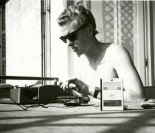
The Beeston Bursary
Applications for the bursary, set up in honour of the Times's former foreign editor Richard Beeston, should be submitted by September 29. Two awards of £6,000 are available for aspiring foreign correspondents Click here for details |
